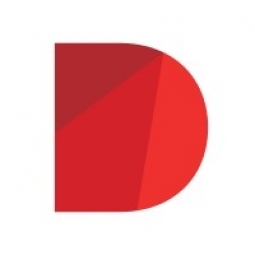Customer Company Size
Large Corporate
Region
- America
Country
- United States
Product
- Diligent Boards™
Tech Stack
- Secure board portal solution
Implementation Scale
- Enterprise-wide Deployment
Impact Metrics
- Productivity Improvements
- Digital Expertise
Technology Category
- Functional Applications - Remote Monitoring & Control Systems
Applicable Industries
- Healthcare & Hospitals
Applicable Functions
- Business Operation
Use Cases
- Remote Collaboration
- Regulatory Compliance Monitoring
Services
- System Integration
- Training
About The Customer
Gwinnett Medical Center (GMC) is a 553-bed, not-for-profit healthcare network that provides a wide array of high-quality services and facilities around the Atlanta area. With approximately 4,800 employees and 800 affiliated physicians, GMC has repeatedly received national recognition for clinical excellence, ranking in the top five percent in the United States for clinical quality. The medical center has one main board and eight committees for a total of 27 end users and five administrators. David McCleskey has served on the main board of GMC since 2004 and has been chairman since 2010.
The Challenge
Gwinnett Medical Center (GMC) was relying on paper-based processes for board meetings which were time-consuming and slowed policy-making. The distribution of board materials was handled through a courier service, which delivered large amounts of paper documents to board members. This process was not only inefficient but also made it difficult for board members to digest new information in a timely manner. The board sought a solution that would help them become faster, more efficient, and more reliable when it came to policy creation.
The Solution
GMC's board chairman, David McCleskey, spearheaded the search for a digital solution for the creation and distribution of board materials. After investigating the top players in the field, they chose Diligent Boards™, a secure board portal solution. The Diligent team provided one-on-one tutorials with each GMC board member, and the uptake of the technology was nearly instantaneous. The GMC board went completely paperless, and the Diligent Boards solution turned data into information, information into insights, and insights into solid policy for GMC.
Operational Impact

Case Study missing?
Start adding your own!
Register with your work email and create a new case study profile for your business.
Related Case Studies.

Case Study
Hospital Inventory Management
The hospital supply chain team is responsible for ensuring that the right medical supplies are readily available to clinicians when and where needed, and to do so in the most efficient manner possible. However, many of the systems and processes in use at the cancer center for supply chain management were not best suited to support these goals. Barcoding technology, a commonly used method for inventory management of medical supplies, is labor intensive, time consuming, does not provide real-time visibility into inventory levels and can be prone to error. Consequently, the lack of accurate and real-time visibility into inventory levels across multiple supply rooms in multiple hospital facilities creates additional inefficiency in the system causing over-ordering, hoarding, and wasted supplies. Other sources of waste and cost were also identified as candidates for improvement. Existing systems and processes did not provide adequate security for high-cost inventory within the hospital, which was another driver of cost. A lack of visibility into expiration dates for supplies resulted in supplies being wasted due to past expiry dates. Storage of supplies was also a key consideration given the location of the cancer center’s facilities in a dense urban setting, where space is always at a premium. In order to address the challenges outlined above, the hospital sought a solution that would provide real-time inventory information with high levels of accuracy, reduce the level of manual effort required and enable data driven decision making to ensure that the right supplies were readily available to clinicians in the right location at the right time.

Case Study
Gas Pipeline Monitoring System for Hospitals
This system integrator focuses on providing centralized gas pipeline monitoring systems for hospitals. The service they provide makes it possible for hospitals to reduce both maintenance and labor costs. Since hospitals may not have an existing network suitable for this type of system, GPRS communication provides an easy and ready-to-use solution for remote, distributed monitoring systems System Requirements - GPRS communication - Seamless connection with SCADA software - Simple, front-end control capability - Expandable I/O channels - Combine AI, DI, and DO channels

Case Study
Driving Digital Transformations for Vitro Diagnostic Medical Devices
Diagnostic devices play a vital role in helping to improve healthcare delivery. In fact, an estimated 60 percent of the world’s medical decisions are made with support from in vitrodiagnostics (IVD) solutions, such as those provided by Roche Diagnostics, an industry leader. As the demand for medical diagnostic services grows rapidly in hospitals and clinics across China, so does the market for IVD solutions. In addition, the typically high cost of these diagnostic devices means that comprehensive post-sales services are needed. Wanteed to improve three portions of thr IVD:1. Remotely monitor and manage IVD devices as fixed assets.2. Optimizing device availability with predictive maintenance.3. Recommending the best IVD solution for a customer’s needs.

Case Study
HaemoCloud Global Blood Management System
1) Deliver a connected digital product system to protect and increase the differentiated value of Haemonetics blood and plasma solutions. 2) Improve patient outcomes by increasing the efficiency of blood supply flows. 3) Navigate and satisfy a complex web of global regulatory compliance requirements. 4) Reduce costly and labor-intensive maintenance procedures.

Case Study
Cloud-based healthcare solution for Royal Philips
Royal Philips wanted to launch its cloud-based healthcare solution HealthSuite Digital Platform in China to deliver services to help cope with challenges related to urbanization and population growth. Philips wanted to achieve this goal by combining mobile, cloud computing and big data technologies. To bring this platform and product to market, Philips required cloud computing and local technical service capabilities in China, in addition to a flexible IT infrastructure that could handle user requests.








